The all-powerful ‘Minister’ and Australian immigration detention
Refugees say they are at the mercy of ‘The Minister’ – three politicians with the power to grant visas and release.
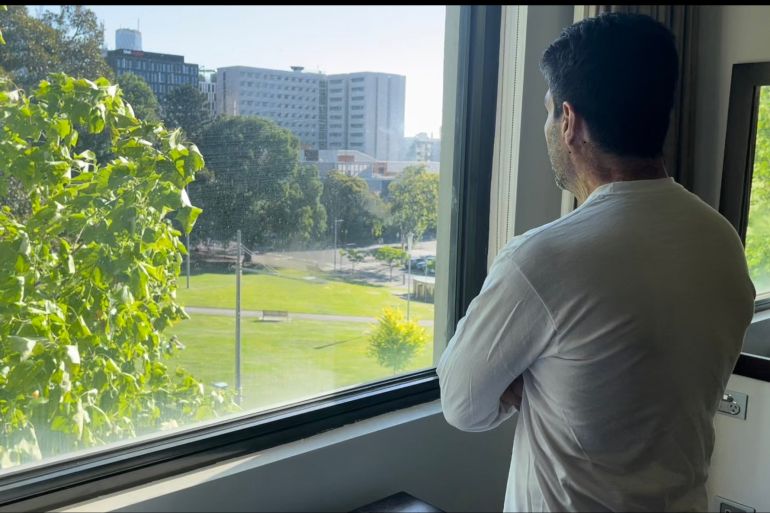
Sydney, Australia – Novak Djokovic’s brief stint in Australia’s most notorious detention hotel put the country’s immigration system under the global spotlight.
The tennis player was detained in January and freed shortly afterwards when he challenged the decision in court. But just as Djokovic thought he would have the chance to defend his Australian Open title, the immigration minister intervened and the world’s top men’s player found himself deported back to Serbia.
Keep reading
list of 4 itemsDjokovic row highlights plight of asylum seekers in Australia
The event that changed me: Being released from refugee detention
Refugee who self-immolated still in Australian detention
Few of the refugees detained at the hotel and other detention centres around Australia, or living on bridging visas, have the same profile or wealth as Djokovic, but like him, they are subject to a system that critics say is arbitrary and cruel.
“The treatment in immigration detention flows inevitably from the way the government’s policy is meant to work,” said Ian Rintoul, a political activist and spokesman for the Refugee Action Coalition. “Detention is meant to be a deterrent … It’s designed so that people will be broken, will accept, ultimately, to be returned home … The treatment inside the detention centres is designed to be cruel.”
Many of those detained in Australia are of a specific category – people who arrived by boat after July 2013, when Canberra made a series of deals with countries in the Pacific that meant that refugees who came by sea would be sent there for processing and would never be allowed to settle permanently in Australia.
Amid a public outcry over conditions in the Nauru and Papua New Guinea (PNG) camps and concerns about the refugees’ mental health, about 179 were evacuated to Australia for medical treatment under 2019’s short-lived Medevac Bill.
But while they were recognised as refugees under a status determination process by the governments in PNG and Nauru, once evacuated to Australia they were detained.
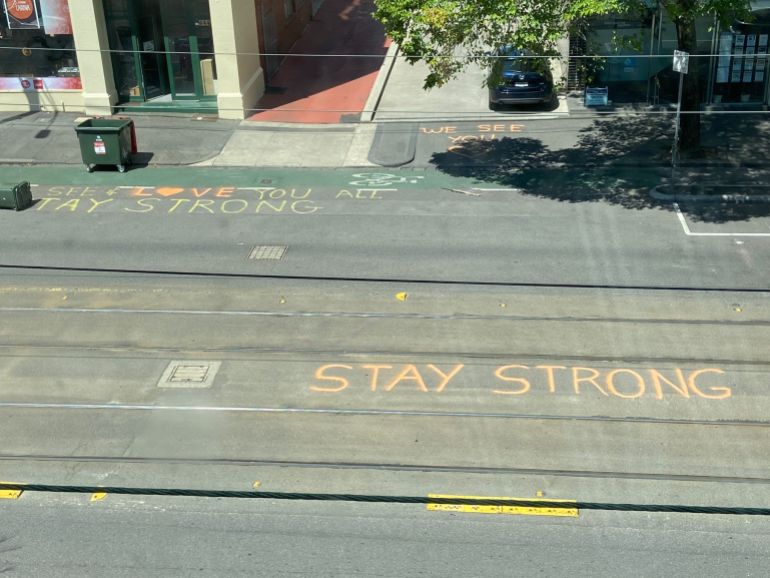
Alison Battisson, a lawyer who represents many of the refugees and heads Human Rights for All, says they can be released only if one of the three ministers in the Department of Home Affairs agrees to grant them a temporary bridging visa, allowing them to live in the community while they await resettlement.
“The power the minister has to cancel and refuse visas and thus trigger detention, potentially indefinite and certainly open-ended, is without parallel,” she told Al Jazeera. “These subjective powers have their origin in attempts to do good – to provide relief from detention for people with intractable migration issues. Instead, they are used for evil – to target a vulnerable group of refugees as punishment for exercising their basic and legal human right to seek and enjoy asylum and to deter others from coming.”
Time as torture
For the refugees, the three politicians who have power over their visas all fall under a single title: “The Minister”.
This is the answer they get when they ask the staff at the detention centres what is happening with their visa applications: “It’s up to the minister.”
Author and former refugee, Behrouz Boochani, spent more than six years in Australian immigration detention before seeking asylum in New Zealand.
He accuses the Australian government of deliberately engineering a lack of transparency, and “using time as a tool in the heart of this regime of systematic torture” to damage the refugees in its care.
The never-ending wait has left Hossein Latifi, a refugee held in the Park Hotel where Djokovic was briefly detained, struggling with depression.
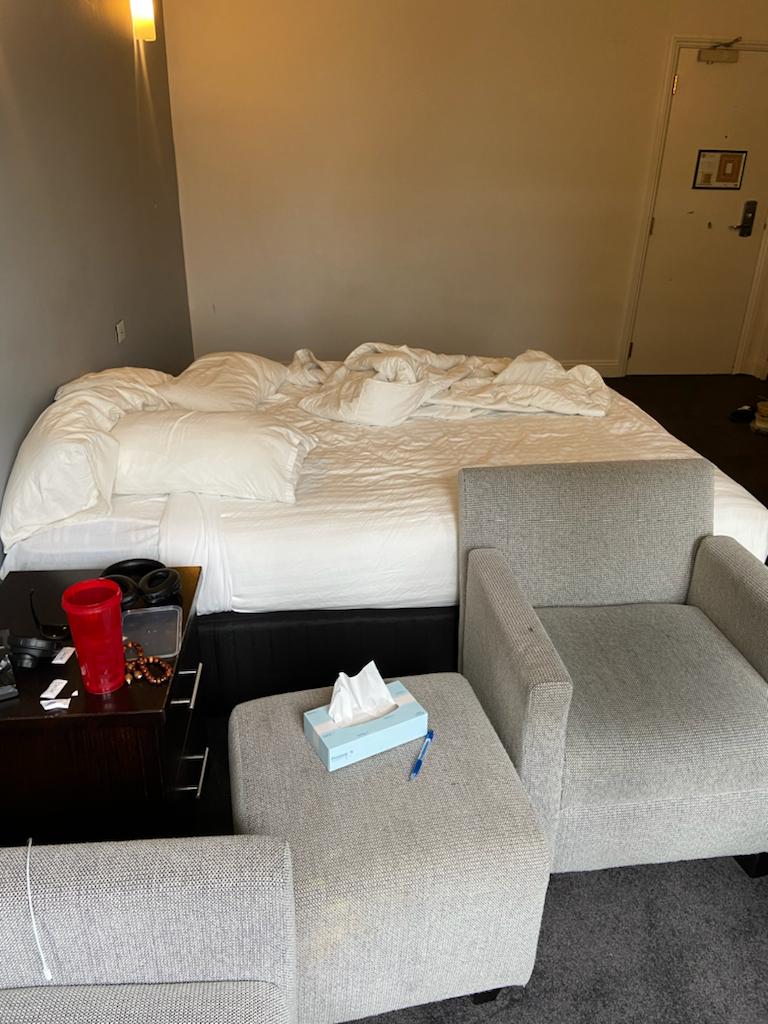
Every night he puts his head on his pillow and says “maybe tomorrow”, he said. “Then tomorrow’s nothing. The next day, nothing. Almost nine years I’m dreaming about this.”
A spokesperson for the Australian Border Force (ABF) told Al Jazeera: “All detainees are able to raise complaints with the Department, contracted service providers and a number of external scrutiny bodies, including the police, regarding any aspect of their detention.”
But Latifi says he cannot reach the minister.
He cannot even reach his caseworker, who is appointed by the government and supposed to help him navigate the system.
“It’s been six months. He never called me, he never sent me any email, nothing. And I called him a few times – I did not hear anything from him,” he said. “This is not only [me], the other refugees, they have the same problem.”
Another refugee, Jamal, who set himself on fire on Nauru after five years of hopelessness on the island, told Al Jazeera that the refugees from Park Hotel recently started being taken to another detention centre to use the gym.
He describes watching people drive and walk freely through the car windows.
“There is no security around them,” he said, “… and when you see yourself, the security is everywhere. It’s like a nightmare for you, every second.”
Recently, a group of Afghan refugees who arrived after the fall of Kabul were moved into a hotel across from the Park Hotel.
According to Rintoul, since these refugees are not in detention, they can come and go.
“There are Afghans evacuated from Kabul, including [the] women’s soccer team,” he said. “… The people I spoke to quarantined in Brisbane and then were moved to that hotel. They are waiting for permanent housing.”
There also appears to be no pattern or logic to who is released, said Battisson.
Over the course of 2021, about 180 refugees were released into the community, leaving just a handful still behind bars.
“What’s the difference between us and them,” asked Latifi.
“This is some kind of torture, we’re suffering every day,” he said. “I [wish] I never come by boat and passed away in the ocean.”
It doesn’t end after release
Latifi is desperate for a visa and the chance to live in Australian society.
But even if a refugee is released from immigration detention, their ordeal is far from over, according to Battisson.
The only visa that Medevac refugees are eligible for is a bridging visa, she says, which is designed to be a temporary pathway for refugees to leave Australia.
They can also be put on Residence Determination and detained in community at a particular address, she said, which is “really a form of detention so that they can continue to arrange deportation”.
Moz Azimitabar, a refugee who was freed from immigration detention in 2021, says he was released on a bridging visa. He was given just 150 Australian dollars ($107) and two weeks’ accommodation. In a response to Al Jazeera, a spokesperson for the Ministry of Home Affairs confirmed those freed from detention might be eligible for financial and other support.
The programme “is dependent on a range of factors including immigration status, needs and vulnerabilities”, the spokesperson said. “Not all recipients are eligible to receive all available services.”
Azimitabar’s visa allows him to work, but does not allow for study. Other bridging visas have study, but no work rights.
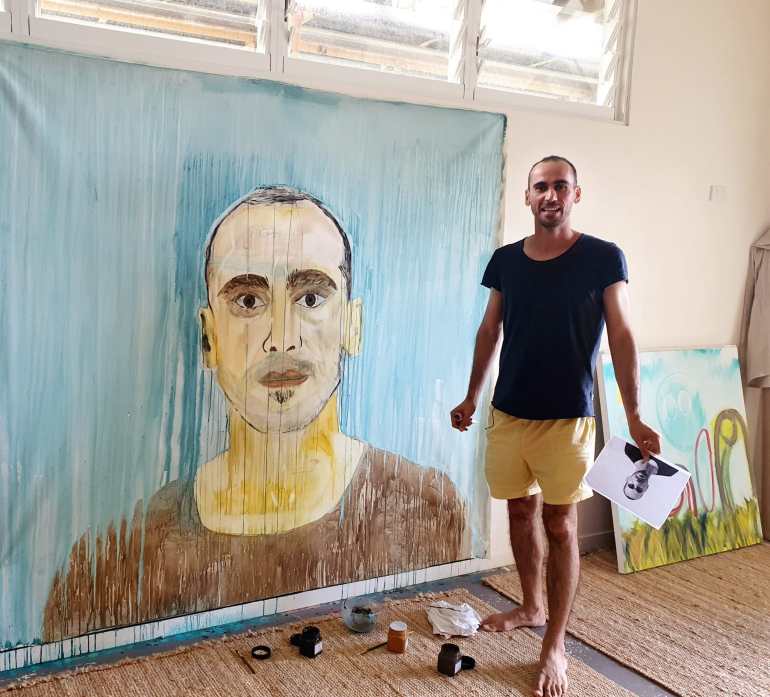
He currently works a few days a week at The Run for Good Project, an initiative that provides free furniture and household goods for people in need. If he was allowed to study, says Azimitabar, he could “be a manager, a leader” and help more people.
He is also haunted by the trauma of immigration detention, which follows him during his work and daily life.
For some refugees, this lasting trauma makes working impossible, said Battisson, which makes for “a self-fulfilling prophecy” where the government claims that they aren’t worthy of protection, and then they “can’t really contribute back”.
Then there is the instability of life on a bridging visa. Azimitabar has to renew his visa every six months.
“Two months before my visa gets over, the panic comes to me [about] what’s going to happen. Are they gonna renew it or not,” he said.
Another concern is that while visas can be renewed, they can also be taken away.
Another refugee, Hector (name changed for his safety), was deported from detention last year with only 1,000 Australian dollars ($711), a few weeks of paid accommodation and three weeks of the medication he needs to treat the Addison’s disease he has developed.
“They don’t give [a] reason, they don’t care,” he said. “… A few months before [I was] deported, they call [my lawyer] and they say he will [get] out soon.”
Instead, he was bundled onto a plane and flown out of the country.
A detention industry
Under the human rights treaties Australia has signed, it has an obligation to provide a space for refugees to seek asylum and be permanently resettled, Battisson said.
The UNHCR condemns Australia’s “long-term, arbitrary detention of any refugee or asylum seeker” as “inappropriate”, Jade Herron, a senior communications assistant at the UNHCR office in Canberra, told Al Jazeera.
“Refugees and asylum seekers should only ever be detained as a measure of last resort and for the briefest possible period to conduct health and security checks upon arrival,” she said. “Where detention is necessary and unavoidable it must meet international standards.”
The Australian government argues that it does meet these standards.
An ABF spokesperson told Al Jazeera, “Australia takes its international obligations seriously, and is committed to acting consistently with those obligations.”
“Regional processing provides illegal maritime arrivals the opportunity to have their protection claims assessed by a regional processing country and, for those found to engage protection obligations, access to third-country resettlement,” the spokesperson added.
Yet many detainees are still being held in what appears to be indefinite detention.
For Boochani, the Australian government has a lot of incentives to continue the regime.
The policy of detaining maritime refugees is based on three things, he said.
First, he said, the Australian government has successfully stirred up fear of refugees in the community to ensure support of its “tough” border policy.
Then there is the money being made by the companies working in the immigration detention system, he said.
Finally, “the politicians who have been involved in this policy or have been running this policy, their power has increased year by year”, he said.
There seems little chance Australia’s border policy will change any time soon. The ABF spokesperson told Al Jazeera: “Australia’s border protection policies remain steadfast; persons who travel to Australia illegally by boat will not permanently settle here.”
In fact, in late 2021, the government re-signed agreements with Pacific countries PNG and Nauru to house its maritime refugees.
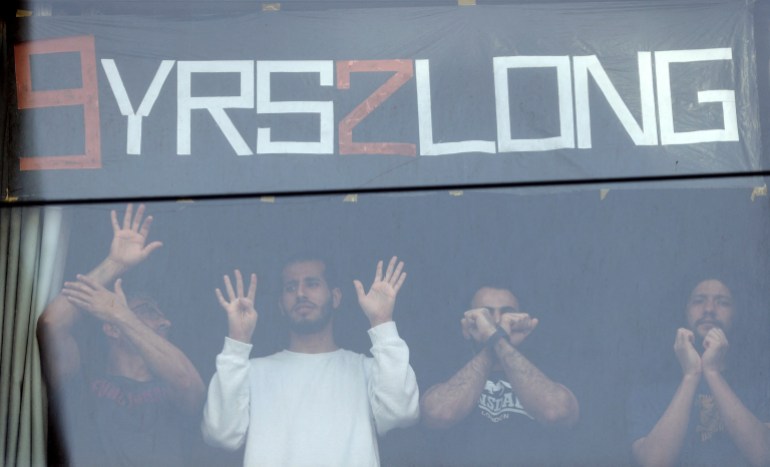
All Azimitabar wants is to be able to live freely and contribute to Australian society.
“The better option is … if I want to get a qualification like an Australian person, without fear, I can go and study … so that I have my business, I have my own ideas,” he said.
But Latifi says he feels like he and other maritime refugees are “hostages”.
“I just want to send the message to the Minister,” he said. “We haven’t committed any crime. We deserve more respect, we are all human.”
“[He] can sign a paper and let everybody out, and I [can] start my new life.”